Piecing together rendered realities
Updated: 2015-07-22 08:02
By Deng Zhangyu(China Daily)
|
||||||||
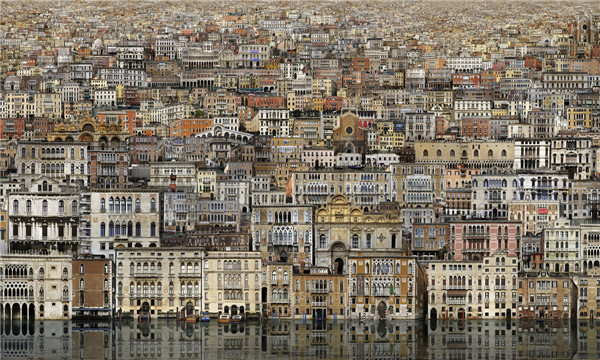 |
|
Hyper Versailles is among French artist Jean-Francois Rauzier's hyperphoto works. [Photo provided to China Daily] |
"When I take quick shots, people are curious about what I do. I often tell them I work for Google Street," he says, laughing.
But while he creates images of ordinary buildings, Rauzier doesn't incorporate ordinary people into his works. He instead opts for celebrities.
His library series, for instance, depicts famous writers as readers in a library.
Architecture is a major theme in Rauzier's works.
He creates works portraying buildings like Gaudi's buildings in Spain, the Louvre and the Chateau de Versailles. A friend once complained that Rauzier cheated him because the real Versailles isn't as magnificent as what he saw in the photographer's works.
Rauzier says Beijing's Forbidden City is a great challenge for him. He says he isn't ready to create works based on it because the ancient palace is too intricate to render into a single image. But it gave him the inspiration he needed to create works based on Versailles and Angkor Wat, he says.
"Architecture in China is surreal. It's not easy for me to think out a good way to present it that's realistic and romantic," he says.
Rauzier plans to put his lens on Yunnan's Hani rice terraces, a UNESCO World Heritage site. He considers the fields to be a form of architecture built by famers over hundreds of years.

 Rare imperial porcelain revealed for first time in Capital Museum
Rare imperial porcelain revealed for first time in Capital Museum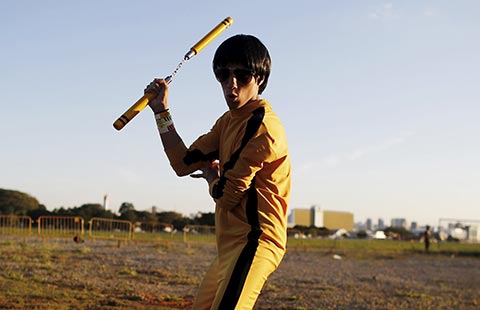
 Cosplay enthusiasts pose during 'Anime Friends' in Brazil
Cosplay enthusiasts pose during 'Anime Friends' in Brazil
 Top 10 services changed by online-to-offline
Top 10 services changed by online-to-offline
 People evacuated after downpour in SW China
People evacuated after downpour in SW China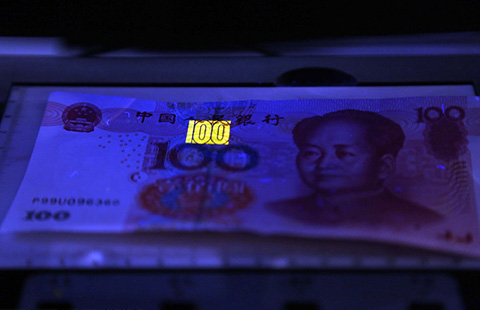
 Identifying counterfeit money
Identifying counterfeit money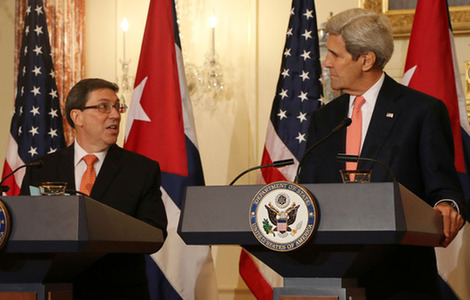
 A New Era in US-Cuba Relations Begins
A New Era in US-Cuba Relations Begins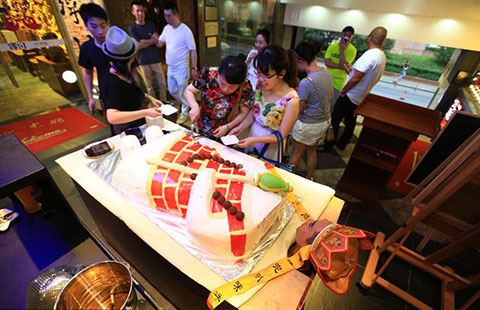
 Eat the 'flesh' of 'Monk Xuanzang' at this shop
Eat the 'flesh' of 'Monk Xuanzang' at this shop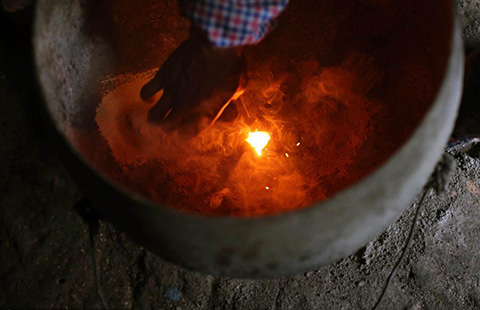
 The dying of craft of repairing pans
The dying of craft of repairing pans
Most Viewed
Editor's Picks

|

|

|

|

|

|
Today's Top News
Ling Jihua's arrest a vital lesson for officials
Cuba, US ties called first step
Life details of Tennessee shooter emerge, but motive elusive
China can now shop at JD.com's US Mall
UN Security Council endorses Iran nuclear deal
US, Cuba set to reboot relations after split
Mayor to turn Zhanjiang into green economic powerhouse
Private firms' access to arms sector widens
US Weekly

|

|






